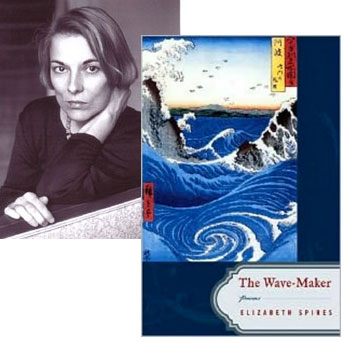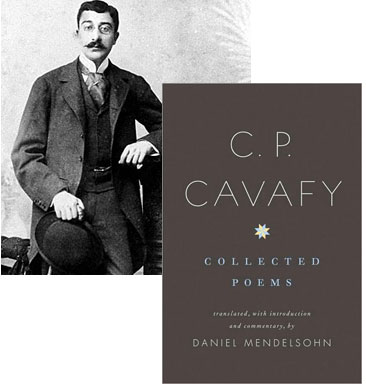Elizabeth Spires, “Grey Garden”

If, one morning, after many hints and premonitions,
you wake to a seasonless season, a grey garden
where nothing lives or dies because nothing
changes, and the only action left is inaction,
make a place for yourself among these fallen leaves.
Imagine a tree, once high and mighty, now felled
by catastrophe. How something is slowly breaking it down
until it crumbles at the merest touch, its form collapsing
inward. Its only hope, if hope is wise, to come back
as a speechless blade of grass, or one of those flowers
with bowed heads, a snowdrop pushing up through snow.
Time is a construct. You must not think about time.
Lie very still and do not mind the cold or count
the nights. You will know you are part of the scenery
when green shoots push up around your heart,
and small chattering birds make you their careless perch,
and even the insects have something to say
about your situation as they hum and whisper,
part of the earth, the earth, the earth,
and this grey garden comes back to life again.
The Wave-Maker, published in the summer of 2008, is the sixth collection of Elizabeth Spires’s poems. It also includes “The Snowy Day,” “Translation of My Life,” and “Moment Vanishing” (all of which Garrison Keillor read on his public radio show The Writers’ Almanac), and the delightfully compact “Bloated Haiku.
Older poems include “Grass” (from Beltway), “In heaven it is always autumn” (from The New Criterion), and Waving Goodbye” (from the Poetry Foundation website). Nine years ago, in an interview with Ploughshares, Spires reflected on where she was at in her writing career:
“I don’t think it’s some sort of phoenix-like redefinition for me… so much as a new stage or chapter that grows out of whatever was there before; there’s no part of a life that springs out of nothing. I am still just writing poems about what is directly in front of me that’s all-engrossing, trying to write really directly. I’ve never been prolific; for me poems are like major events. Even if they’re about something small—that something may seem small to other people, but it doesn’t feel small to me.”
Spires’ most recent poems were published earlier this year in I Heard God Talking to Me, where they are juxtaposed with photographs of the sculptures of William Edmondson.
15 April 2009 | poetry |
C.P. Cavafy, “The Naval Battle”

We were annihilated there at Salamis.
Let us say oá, oá, oá, oá, oá, oá.
Ecbatana and Susa belong to us,
and Persepolis—the loveliest of places.
What were we doing there at Salamis
hauling our fleets and doing battle at sea?
Now we shall return to our Ecbatana
to our Persepolis, and to Susa.
We shall go, but shan’t enjoy them as once we did.
Otototoi, otototoi: this battle at sea,
why must it be, why must it be sought out?
Otototoi, otototoi: why must
we pick ourselves up, abandon everything,
and go there to do battle so wretchedly at sea.
Why is it thus: as soon as someone owns
illustrious Ecbatana, and Susa,
and Persepolis, he straightaway assembles a fleet
and goes forth to battle the Greeks at sea.
Ah yes, of course: let’s not say another word:
otototoi, otototoi, otototoi.
Ah yes, indeed: what’s left for us to say:
oá, oá, oá, oá, oá, oá.
I’m not 100% certain, but I think this Collected Poems, translated by Daniel Mendelsohn, is the third major translation of C.P. Cavafy‘s poems in the past decade; I first discovered his work through the versions Theo Theoharis published in 2001, and then Aliki Barnstone took a turn at them in 2006. (It’s been ages since I read the Theoharis, and I never did read the Barnstone, so I can’t tell you how they compare.) As part of its poem-a-day feature, Knopf has also put Mendelsohn’s translation of “On the Jetty” online, and the New York Review of Books has published Mendelsohn’s introduction to the collection.
Mendelsohn has also translated Cavafy’s unfinished fragments, like “It Must Have Been the Spirits” (from The New Yorker).
You may recognize Cavafy’s “Ithaka,” depending on how many weddings you’ve been to over the years; the more you attend, the better the odds you’ve heard it at least once. Here it is as read by Sean Connery, with an original soundtrack by Vangelis:
14 April 2009 | poetry |

 Our Endless and Proper Work is my new book with Belt Publishing about starting (and sticking to) a productive writing practice.
Our Endless and Proper Work is my new book with Belt Publishing about starting (and sticking to) a productive writing practice. 
